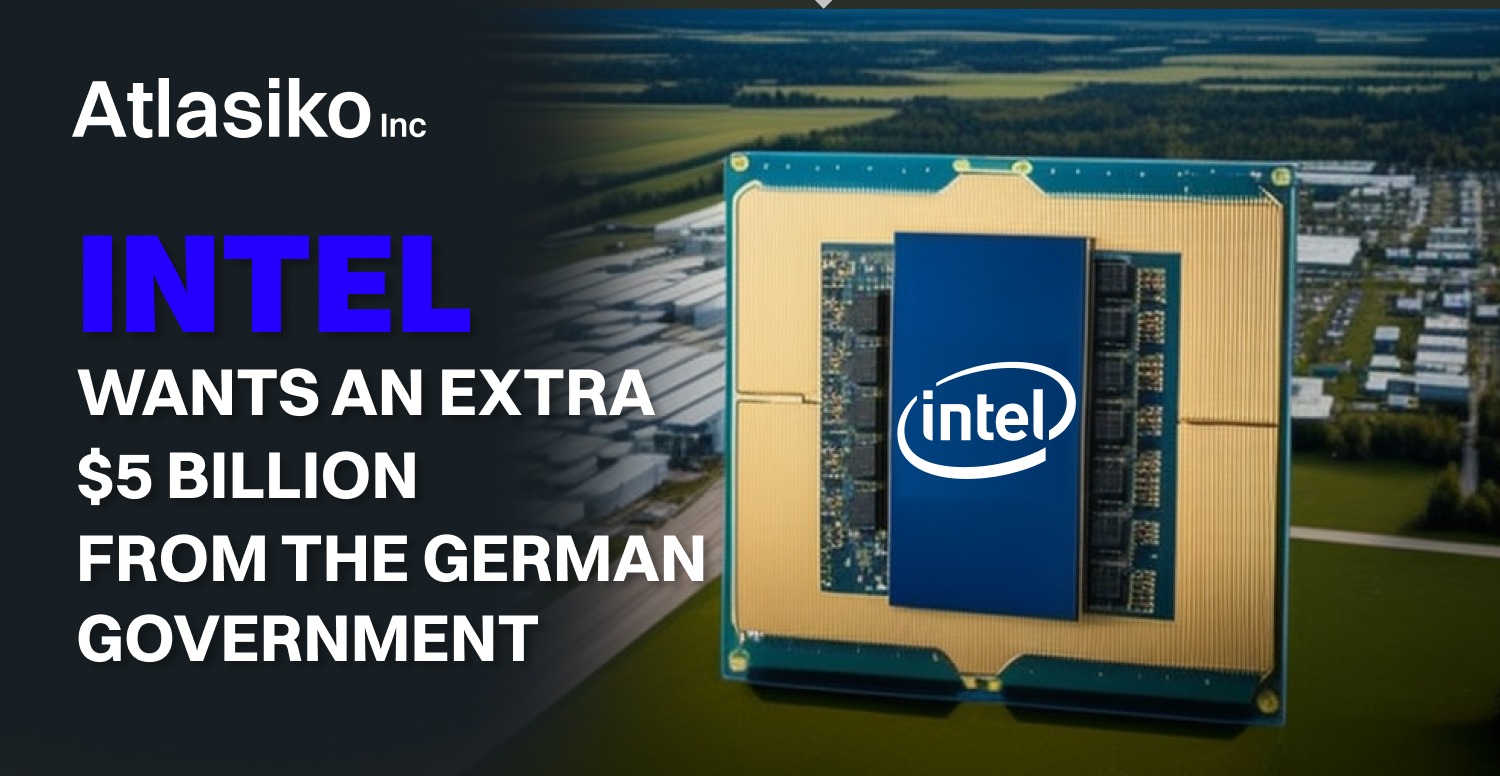Intel Corp. is looking for an extra 4-5 billion euros in grant-in-aid from the German government to move forward with a chip constructing complex in the eastern part of the country. This follows the company's previous agreement to build a factory in Magdeburg with 6.8 billion euros in government subsidies, after the approval from the European Commission. Due to economic recession, Intel delayed the beginning of building the project at the end of previous year and is now seeking for more support. Also, shares fell down from 1.8% to $25.53 closely to 3.30 p.m. in NY.
“Disruptions in the global economy have resulted in increased costs, from construction materials to energy”
Besides, it was added that they respected positive dialog with the federal government to solve cost gap that existed with building in other locations and to make this project global leader.
Intel, under the leadership of CEO Pat Gelsinger, has started a colossal building of new manufacture made to get back the leading position in the semiconductor industry and help rebalance the concentration of manufacturing in East Asia. The company's Germany project is facing postponements just as the US is prompting other nations to help prevent China's chipmaking abilities from moving forward. The year before, the European Commission represented a plan, called the EU Chips Act, to invest 43 billion euros into the semiconductor industry on the continent. The US also announced a $50 billion scheme to subsidize its own GDP (gros domestic product).
Intel contests competitors such as Taiwan Semiconductor Manufacturing Co. and Samsung Electronics Co. for this government assistance, and emphasizes that early approval of the project is necessary. The company reported an increase in the number of facilities over Europe preceding year that, at that moment, amounted to 33 billion euros worth. For example, it announced about research facility in France and an increasing area of its occuring chip center in Ireland. The main point among the ideas was the chip production plant, that Magdeburg would become home to, able to outperform other sites in Europe.
In 2022, when Russia invaded Ukraine, prices for energy in Europe turned out to be hugely volatile and inflation made a boost in construction cost. Refusing to comment on its discussions with Intel, the German economic ministry only mentioned the EU's intention of producing 20% of the world's semiconductors by 2030.
Intel estimated that the Germany project would cost 17 billion euros but now thinks to spend 30 billion, according to Bloomberg News. Some sources claim that the company was supposing about 40% of its project to be subsidized.
It should be said that Intel's forecasts in Ireland and France, at the same time, stay on track. The company has announced a number of other projects around the world, including plans for two new semiconductor factories in Arizona, as a part of its aim to regain a leading position in the sector. Its chip production capacity met increasing scrutiny from investors as the global shortage of semiconductors has led to supply chain disruptions and delays in industries ranging from automobiles to electronics.
To sum up, the proposed Intel complex in Germany would be a significant boost to the country's economy, creating thousands of jobs and establishing the country as a key player in the semiconductor industry. However, the delay and increased cost of the project highlight the challenges chipmakers are facing as they seek to increase production in the rapidly changing global market.







